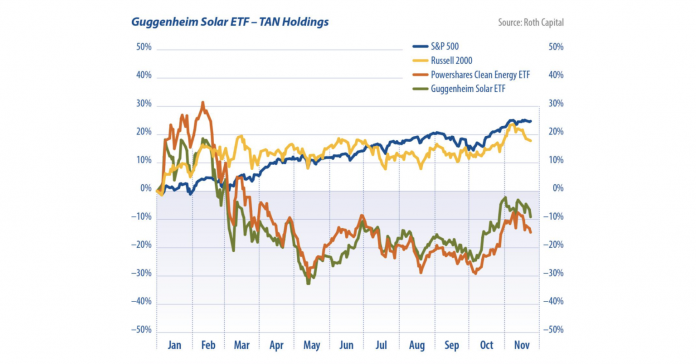Solar stocks performed poorly in the month of November, with the Invesco Solar ETF trading down 7%, underperforming the broader market and major indices such as the S&P 500, which was up 1.7%. The top five performing solar stocks in the U.S. market include Applied Materials, Inc. (6.7%), Enphase Energy, Inc. (4.6%), JinkoSolar Holding Co., Ltd. (2.2%), and Array Technologies, Inc. (0.9%).
As far as the U.S. market is concerned, solar’s underperformance this month can be tied to new legislation making its way through the capital. The elimination of the bifacial exemption/exclusion by the U.S. government was refused by the U.S. Court of International Trade. Module providers may now import bifacial modules into the United States, and the industry will avoid the section 201 import duties.

This comes as a big surprise to us. We expect that the Department of Justice will file an appeal against the decision, although the time frame for this is unknown at this stage. We expect it to take longer than two months.
The chances of the DOJ succeeding are high. Some are stating a 99% chance of a successful appeal, however we believe the likelihood is between 50% and 75%. The current situation is a big negative for domestic thin film producer First Solar, and a major positive for other utility scale companies that serve the U.S. market.
In other public policy developments, the House also passed H.R. 5376/Build Back Better Act 220-213, following a nine-hour delay from House Minority Leader McCarthy (Republican, California). The measure is now on its way to the Senate.
If the House rejects the Senate’s version of the legislation, House and Senate leaders must agree on a conference report. All eyes will be on senior senators Joseph Manchin and Kyrsten Sinema in the coming weeks.






